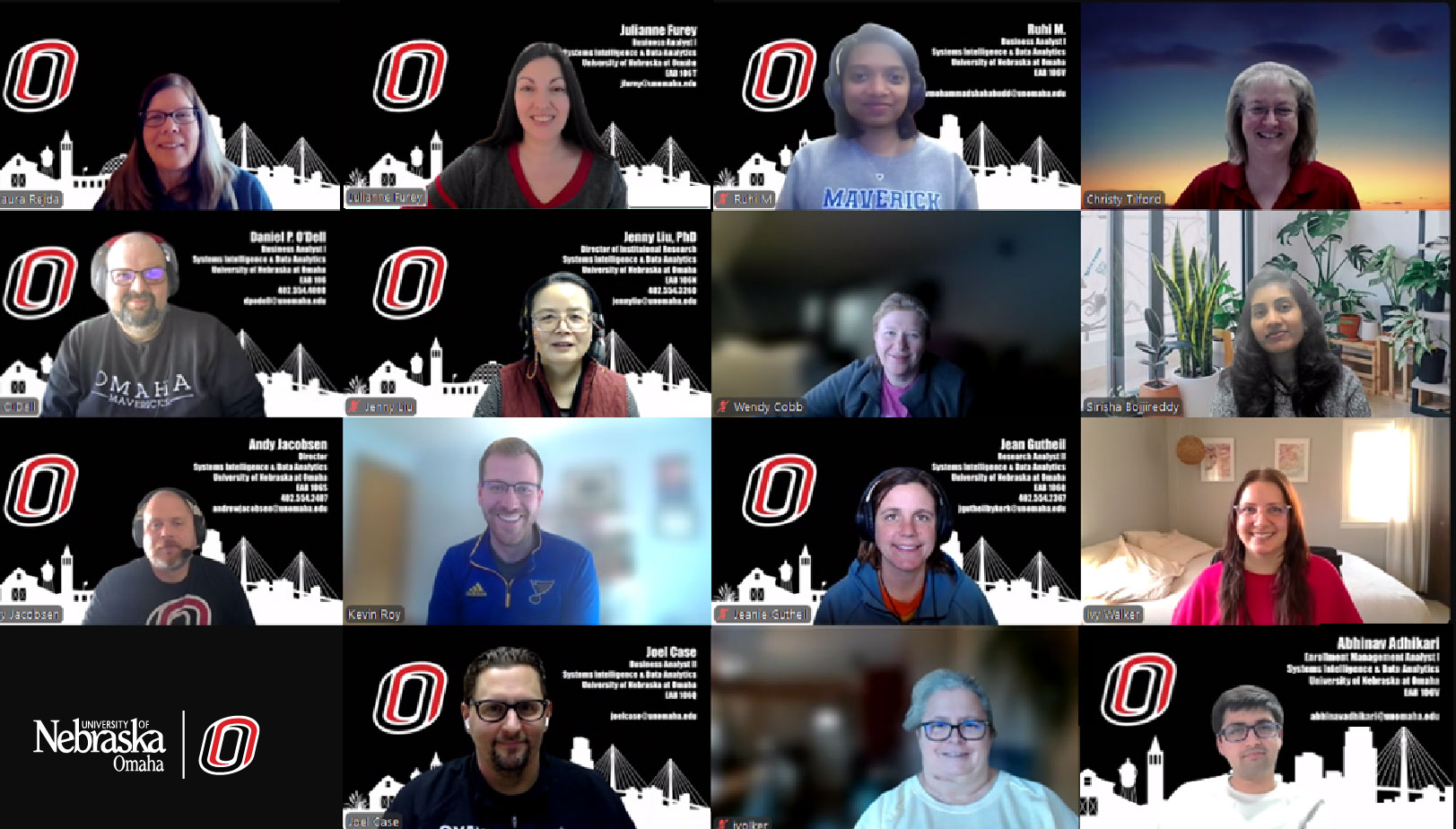Goodbye Data Silos: How UNO Is Streamlining Data with ChatGPT
- published: 2025/06/19
- contact: UNO Division of Innovative and Learning-Centric Initiatives (ILCI)
- email: innovate@unomaha.edu

The modern university is comprised of seemingly infinite systems (or so it feels that way). These systems require continuous planning and assessment while increasing their quality and effectiveness. It’s a tall ask: one that’s done by the University of Nebraska at Omaha’s Systems Intelligence and Data Analytics (SIDA) team within the Office of Institutional Effectiveness (OIE) Department.
How It Started
Traditionally, data accessibility and documentation have challenges related to manually answering data queries, maintaining up-to-date documentation, and sharing data knowledge (resulting commonly in data siloes). As so many stakeholders at UNO rely on the SIDA team’s reports and data, it became clear they needed an efficient solution.
Using a Custom GPT provided by UNO’s ChatGPT Enterprise license, SIDA can use artificial intelligence to streamline its processes.
The idea? Create a chatbot that uses existing data warehouses, reports, and dashboards. SIDA wasn’t setting out to reinvent the wheel—rather, they wanted something to help:
- Automate responses to common queries
- Facilitate quick access to dashboard insights
- Generate real-time documentation for reports
In other words, make knowledge more accessible.
“With so many requests and responsibilities, we needed a smarter way to manage knowledge and support our campus partners. AI offered a path to do more with less—and do it faster.”
–Systems Intelligence & Data Analytics (SIDA)
Bringing the Idea To Life
Working with internal stakeholders, they proposed an idea to develop a generative AI chatbot to learn about their team, reports, existing dashboards, table structures, and policies. Because SIDA transforms raw operational data and assessment data into actionable information that the university uses for strategic planning and decision-making, the chatbot needed to be able to answer users directly.
Continued Assessment and Initial Wins
Additionally, SIDA plans to integrate automated documentation for their day-to-day tasks and get ideas and project assistance for automating regular manual tasks.
This project is aimed at improving the efficiency of the team members and making their work and the team more visible to the university with a better understanding of what they do and what they can do.
One minor drawback includes the number of files and the size of each file that can be used to configure the chatbot are limited. They have also explored and figured that the custom GPTs cannot be collaborated on by multiple team members, which was later fixed or resolved by OpenAI. They’ve proposed a new RFP to explore and extend their learning experience by repurposing the initial project to be more focused on their specific needs and creating multiple custom GPTs for disparate purposes, subgroups, and smaller teams within SIDA rather than creating one monster chatbot with the current limitations.
What’s Next for the SIDA Team
Always learning and growing, the team plans to expand the chatbot’s capabilities—automating more manual tasks, refining metadata interpretation, and supporting broader campus use by focusing on milestones and creating multiple custom GPTs. The SIDA team is positioned as innovators and advocates for AI-driven efficiency at UNO.
If you or your team is interested in getting access to an enterprise ChatGPT seat through the AI Learning Lab, click here to learn more.
About the University of Nebraska at Omaha
Located in one of America’s best cities to live, work and learn, the University of Nebraska at Omaha (UNO) is Nebraska’s premier metropolitan university. With more than 15,000 students enrolled in 200-plus programs of study, UNO is recognized nationally for its online education, graduate education, military friendliness and community engagement efforts. Founded in 1908, UNO has served learners of all backgrounds for more than 100 years and is dedicated to another century of excellence both in the classroom and in the community.